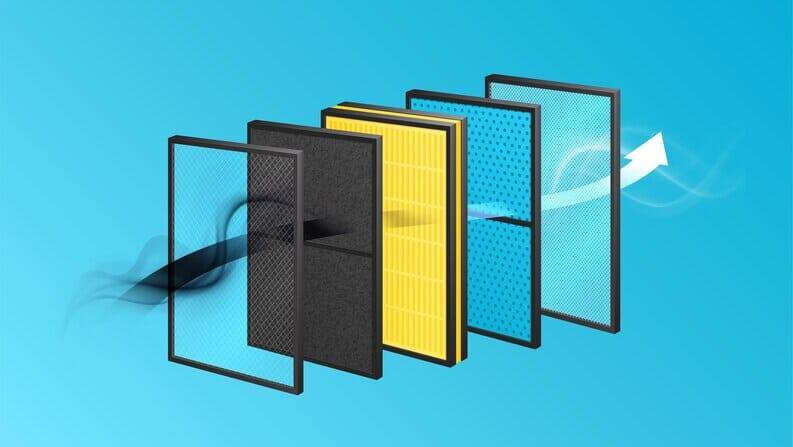
HEPA Filters and Air Purifiers: How They Work and Why They Matter
In today's world, indoor air quality has become a top concern, particularly in light of increasing pollution levels. As we spend more time indoors, the need to ensure clean and healthy air has never been more critical. HEPA filters and air purifiers have gained significant attention as effective solutions for improving indoor air quality. Let’s explore how HEPA filters and air purifiers work and why they matter for our health.
Understanding HEPA Filters
HEPA stands for High-Efficiency Particulate Air, and HEPA filters are highly efficient at capturing particles from the air. They were originally developed during World War II to prevent radioactive particles from spreading. Today, HEPA filters are widely used in air purifiers, vacuum cleaners, and HVAC systems to improve indoor air quality.
How HEPA Filters Work
HEPA filters work through a combination of mechanical and diffusion-based processes. The filters consist of dense layers of fibers that trap particles as air passes through them. When airborne particles, such as dust, pollen, pet dander, mold spores, and even bacteria and viruses, come into contact with the fibers, they get trapped due to the filter's fine mesh-like structure. HEPA filters are designed to capture particles as small as 0.3 microns with an efficiency of at least 99.97%. This includes particles smaller than the naked eye can see, making them highly effective in removing even the tiniest airborne contaminants.
The Importance of Air Purifiers with HEPA Filters
Removal of Allergens: HEPA filters are particularly effective at capturing allergens that can trigger allergic reactions in susceptible individuals, providing relief from sneezing, coughing, and other allergy symptoms.
Reducing Airborne Pathogens: HEPA filters can also capture and trap harmful bacteria and viruses, including the COVID-19, which is typically found in respiratory droplets.
Mitigating Respiratory Issues: For people with respiratory conditions like asthma, using air purifiers with HEPA filters can significantly improve indoor air quality and reduce exacerbations of their conditions.
Enhancing Sleep and Well-being: Clean air promotes better sleep and overall well-being by ensuring a healthy breathing environment, free from pollutants and allergens.
Choosing the Right Air Purifier
When selecting an air purifier with a HEPA filter, consider the following factors:
Room Size: Choose an air purifier suitable for the room size to ensure optimal air circulation and filtration.
Clean Air Delivery Rate (CADR): Look for the CADR rating, which indicates the volume of clean air produced by the purifier in cubic feet per minute (CFM). Higher CADR values are more efficient at removing contaminants.
Filtration Efficiency: Check if the air purifier uses a true HEPA filter, as some products may claim to be "HEPA-like" or "HEPA-type," but their filtration efficiency might be lower.
Noise Level: Consider the noise level of the air purifier, especially if you plan to use it in bedrooms or quiet spaces.
To conclude, HEPA filters and air purifiers play a crucial role in maintaining clean and healthy indoor air. By efficiently capturing airborne particles, allergens, and pathogens, they contribute to a better living environment and can benefit those with respiratory issues or allergies. When choosing an air purifier, ensure it uses a true HEPA filter and is appropriately sized for the room. Remember, investing in a high-quality air purifier with a HEPA filter is an investment in your health and well-being.

Leave a comment